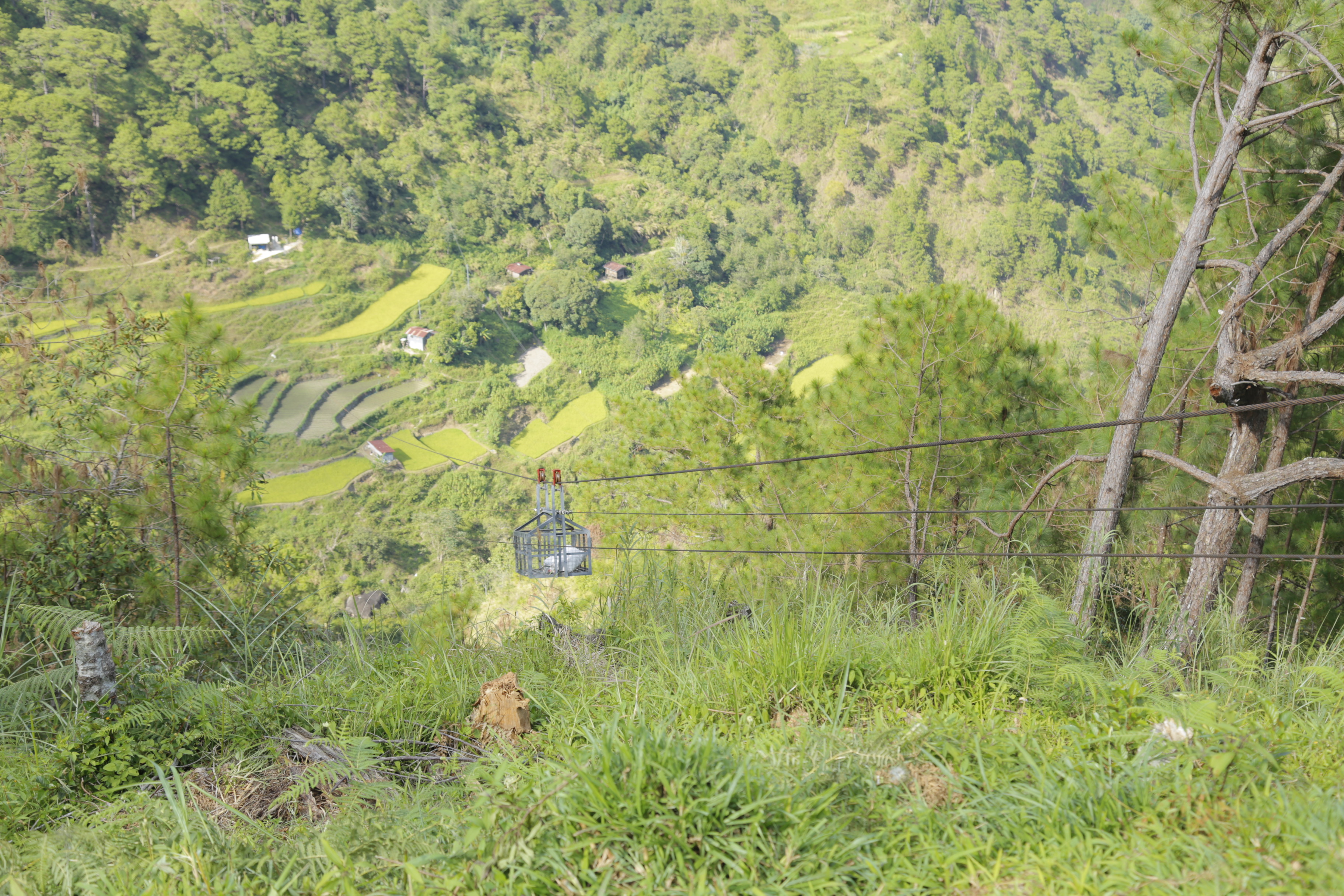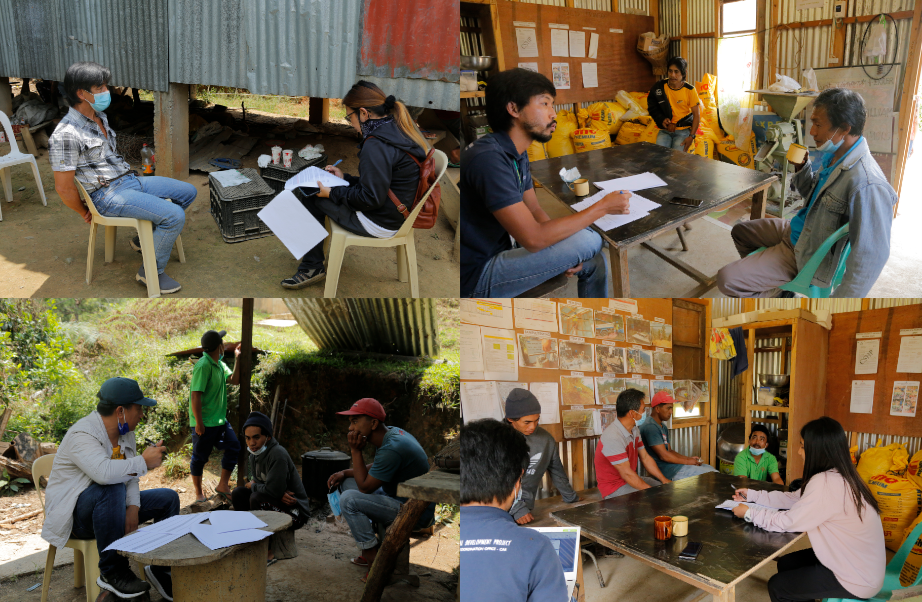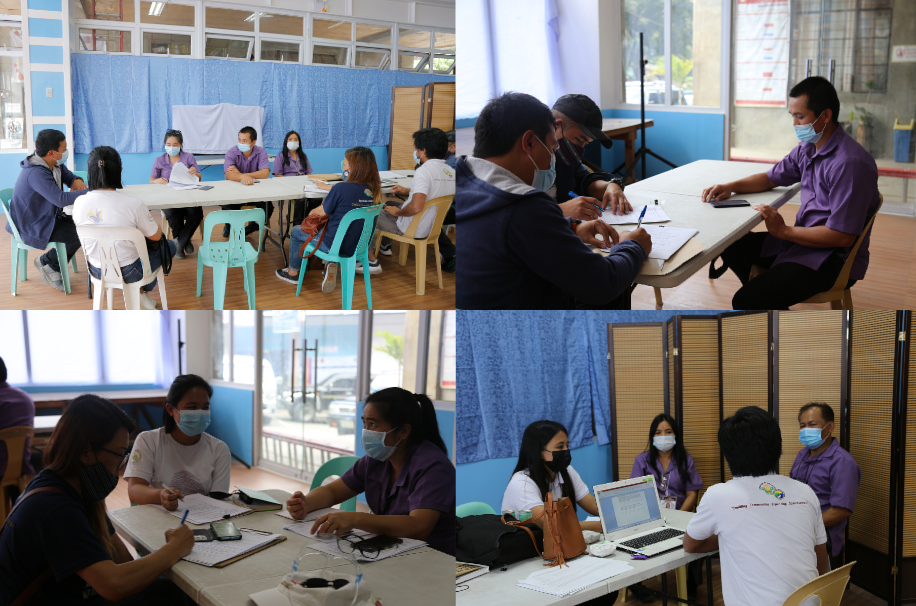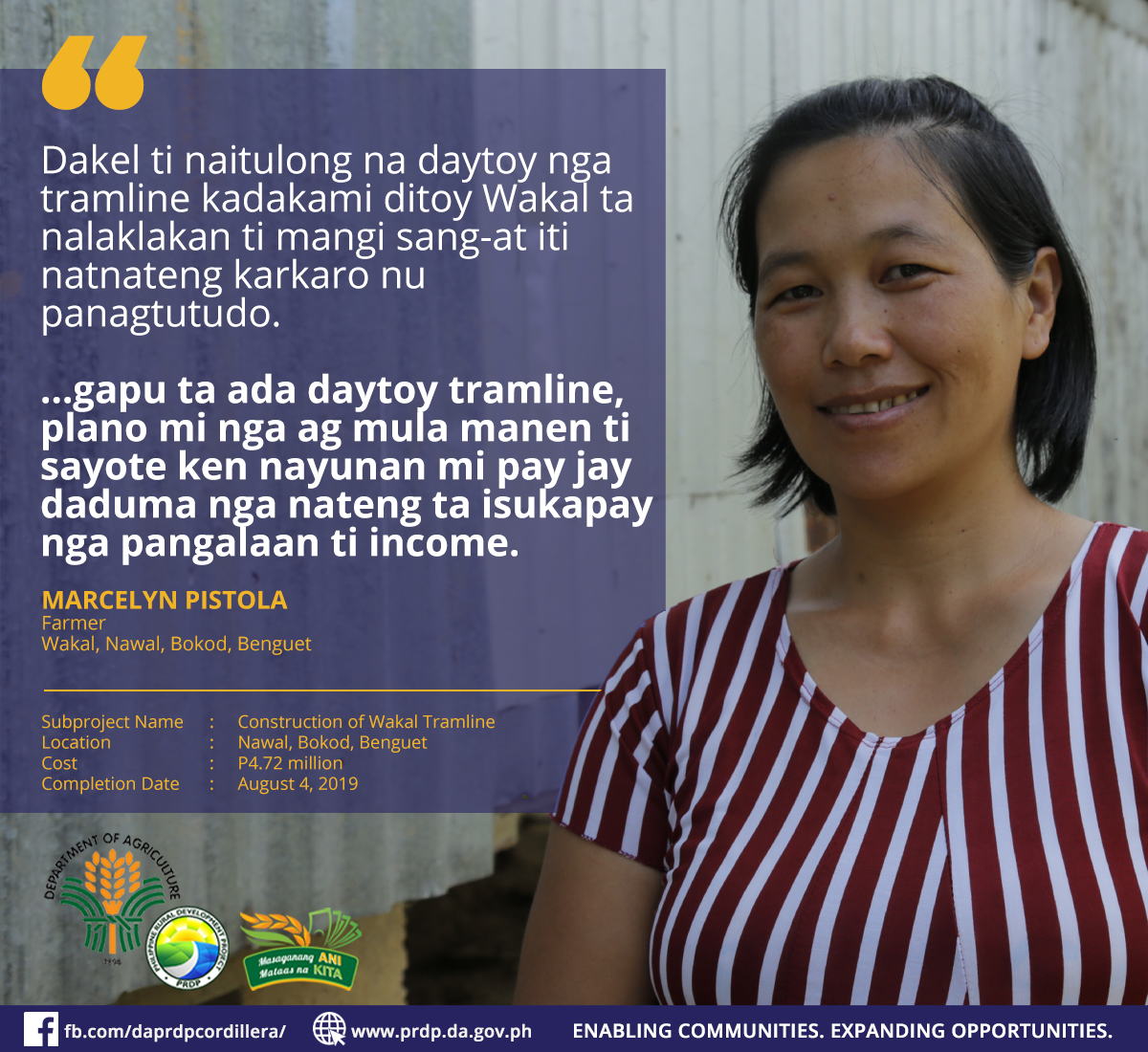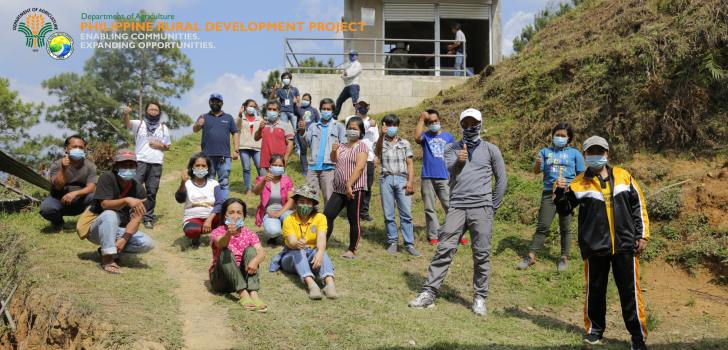
Completed tramline subproject in Benguet shows positive impact
Farmers in sitio Wakal, Nawal, Bokod, Benguet expressed full gratitude to the Department of Agriculture’s Philippine Rural Development Project (DA-PRDP) for the benefits that the tramline subproject has brought to the community after it was turned over to them last October 2019.
To determine the impact of the Wakal Tramline subproject, data gathering procedures were undertaken for the Rapid Appraisal of Emerging Benefits (RAEB) on March 29-30, 2021 as part of the monitoring and evaluation activities of the PRDP.
There were 12 direct farmer beneficiaries, three barangay officials, and four from the municipal local government unit (LGU) of Bokod who were interviewed through a household survey, focus group discussion (FGD), and key informant interview (KII).
Initial findings show that the tramline subproject has positive impact to its beneficiaries.
“Dakel a ti naitulong na daytoy nga tramline kadakami ditoy Wakal ta nalaklakan timangi sang-at iti natnateng mi karkaro nu panagtutudo (this tramline is really a big help to us in hauling our vegetable produce especially during rainy days), said Marcelyn Pistola.
Together with her husband, they are now farming an estimated area of 2,500 square meters planted with various vegetables and fruit bearing trees such as lemon and avocado, among others.
“Insardeng mi ti ag-sayote idi ta narigat ti agbagkat ngem gapu ta ada daytoy tramline, plano mi nga agmula manen ken nayunan mi pay jay daduma nga nateng ta isukapay nga pangalaan (we stopped producing sayote because it was too heavy to carry but because of the tramline, we are planning to produce sayote again and increase our vegetable production), Pistola added.
Emerson Pitas, a young farmer in his mid-20s also said that he became more motivated to help out in the family’s farm because he no longer have to carry heavy loads up to the nearest road for several times in a day. According to him, he was also employed as a laborer during the construction of the tramline.
In a FGD that was conducted among the beneficiaries, they said that people bonded with each other because of the tramline and several people in the locality are now motivated to work in the farms.
According to Nawal barangay chair Danny Yabnes, farmers usually charge P20 to P100pesos per kilogram or sack for the kumboy (manual hauling) of vegetables and fertilizers but with the tramline, the Wakal Gardener’s Association now collects one peso per kilogram of vegetables and P20 for every sack.
He added that the association was strengthened because of the tramline subproject.
Jose Catao, tramline operator said that the income gained from the tramline is being used for repair and maintenance, for fuel, and for his stipend.
“Kasla lugan metlang daytoy nga tram ket kasapulan ti maintenance tapnu mausar nga nabay-bayag (the tramline is also like a vehicle which requires maintenance for it to be used for a longer period of time),” he added.
Moreover, the LGU also expressed their satisfaction to the completed subproject since it is a big support system to agriculture and it has many benefits to the farmers.
“Benguet is a mountainous area and the construction of tramlines will really support the production and delivery of agricultural products,” said Bokod Municipal Agriculturist Gerardo Beray. He also appreciated the involvement of line agencies in the implementation of PRDP subprojects from the planning stage to implementation.
Nellie Chian, Project Development Officer I of LGU Bokod and the Social and Environmental Safeguards (SES) focal person for PRDP in Bokod, also appreciated how the PRDP comes back to monitor and evaluate subprojects even after completion.
“With the limited manpower and logistic support, the LGU cannot afford to involve several personnel to regularly monitor subprojects and we appreciate that with the PRDP,” she added.
RAEB is an evaluation tool that is conducted to determine the impact and success of individual subprojects implemented under the PRDP and how these are aligned to the Project Development Objectives. Likewise, it aims to assess the sustainability of subprojects and help determine sustainability measures.
“The actual scenarios and lessons emerging from the completed subprojects are captured through the RAEB which may aid the PRDP management in making decisions and developing sustainability measures for succeeding subprojects,” said Jason Budas, Monitoring and Evaluation unit head of the PRDP Regional Project Coordination Office-CAR (RPCO-CAR).
He added that the results of RAEB activities to completed subprojects are presented to the PRDP management through World Bank Implementation Support Missions (WBISM) which are being held twice a year.
“As the PRDP implements subprojects, monitoring and evaluation activities are continuously being conducted to provide the necessary data to guide strategic planning and implement subprojects in better ways,” said Budas. ### Elvy Taquio Estacio (DA-PRDP)
